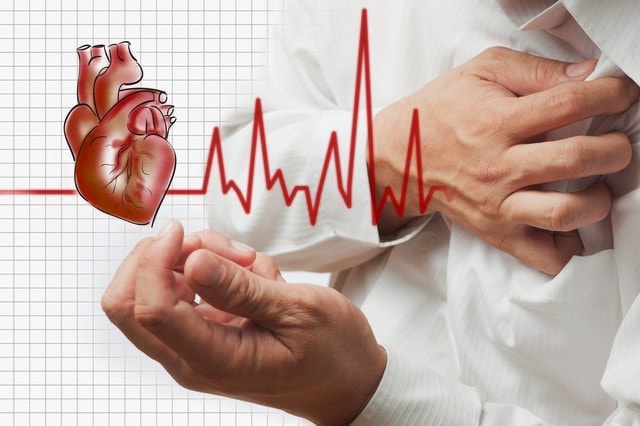Signs that your heart is unstable
The heart always needs to be protected to stay healthy. There are slight abnormal signs that make you subjective, neglect to take care of it, this will lead to unpredictable consequences.
Below are signs that your heart is in trouble, unstable and needs care, examination and treatment.
Easily exhausted
You suddenly feel tired or out of breath after doing things you used to do without any problems. Burnout doesn’t happen overnight, but it can affect you. The signs and symptoms are mild at first, but they get worse over time.
 |
Excessive fatigue or unexplained weakness, sometimes lasting for days, can be a sign of heart disease. |
Consider early symptoms as early warning signs that something is wrong with you. Paying attention and actively addressing stress can prevent more serious consequences, but ignoring them can eventually burn you out. Excessive fatigue or unexplained weakness, sometimes lasting for days, can be a sign of heart disease.
Chest pain, pain radiating to the arm
Chest pain feels different to everyone. The discomfort usually lasts a few minutes. It can happen when you are resting or when you are physically active. It is the most common sign of heart disease, you may feel pain, tightness or pressure in your chest.
Another classic heart attack symptom is pain that radiates down the left side of the body. The pain seems to originate in the chest and then radiate outward; some patients only experience pain in the arm, but only find out it is a heart attack upon examination.
Dizziness or lightheadedness
Lots of things can cause you to lose your balance or feel dizzy for a moment. It could be that you didn't eat enough, or you stood up too quickly.
But if you suddenly feel unsteady and experience chest pain or shortness of breath, call your doctor right away. This could mean your blood pressure has dropped because your heart can't pump as well as it should.
snoring
A little snoring while you sleep is normal. But unusually loud snoring that sounds like gasping or choking can be a sign of sleep apnea. You may stop breathing for brief moments, several times a night while you sleep. This puts extra strain on your heart.
A cough that won't go away
In most cases, this is not a sign of heart disease. But if you have heart disease or know you are at risk, pay special attention to this possibility.
If you have a persistent cough that produces white or pink mucus, it could be a sign of heart failure. This happens when the heart can't keep up with the body's needs, causing blood to leak back into the lungs.
 |
These causes can be abnormalities or diseases of the heart itself, or diseases in other organs that affect the heart rhythm. |
Abnormal heart rhythm
There are many causes of arrhythmia. These can be abnormalities or diseases of the heart itself, or diseases of other organs that affect the heart rhythm. Arrhythmias can occur transiently for only a few minutes or less, appearing in episodes without any previous warning signs. However, some arrhythmias last for hours, or even continuously for years.
Another type of arrhythmia is caused by damage to the heart's rhythmic conduction system, causing the heart to contract out of sync, gradually reducing heart function or reducing the patient's ability to function.
It's normal for your heart to beat faster when you're nervous or excited, hold your breath, or add a beat every once in a while. But if you feel your heart beating faster for just a few seconds, or if it happens often, tell your doctor.

.jpg)



.jpg)
.jpg)

